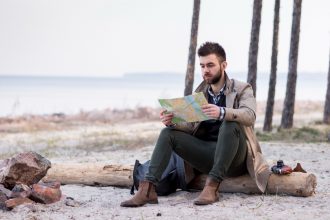Traveling has always been one of humanity’s most profound ways of learning. It takes us outside the boundaries of our daily routines and exposes us to new people, landscapes, and traditions. Yet not all forms of travel offer the same level of knowledge. While organized tours often provide a sense of safety, structure, and efficiency, traveling solo has a unique ability to deliver deep insights that group trips rarely match. Solo journeys open the door to authentic experiences, personal reflections, and genuine cultural encounters that organized tours—often bound by rigid itineraries—simply cannot provide.
One of the most striking advantages of traveling independently is the opportunity to fully immerse oneself in the rhythm of local life. Guided tours often deliver a polished version of culture. A guide may summarize centuries of history in a brief anecdote or highlight only the most “marketable” aspects of a destination. While convenient, this narrative rarely captures the complexity and contradictions that make a place unique. In contrast, the solo traveler has no filter. By venturing into local markets, speaking with its residents, trying daily street foods, or sitting quietly in a neighborhood café, they witness life unfold as it naturally does. This fosters not just textbook knowledge of a culture but an intimate understanding of how people truly live and think.
Solo travelers are also more likely to develop curiosity and sharpen their problem-solving abilities. Without the safety net of a pre-arranged bus schedule or translator, every choice requires observation, critical thinking, and adaptability. Reading a train timetable in a foreign language, navigating winding alleyways without Wi-Fi, or negotiating with local shopkeepers teaches a traveler far more about a country than passively following a flag-waving guide. These small yet meaningful challenges encourage resilience and independent thought—skills that extend well beyond travel.
Reflection is another often-overlooked dimension of solo exploration. Freed from the chatter of groups and the need to move at someone else’s pace, solo travelers have the space to process what they are experiencing. A quiet evening journaling after getting lost in an unfamiliar city or contemplating the cultural significance of a local ritual carries far greater impact than being ushered through a tourist site in half an hour. In solitude, travelers not only learn about the world but also about themselves—their assumptions, their limits, and their openness to change.
Organized tours are often designed to entertain as much as inform, streamlining stories, destinations, and even meals for convenience. While there is nothing inherently wrong with this model—it can be efficient and enjoyable—it rarely scratches beneath the surface. The solo traveler, however, has no such boundaries. They have the freedom to stay longer in a village that intrigues them, to ask locals questions unfiltered by a guide’s agenda, and to encounter the serendipity that occurs when plans fail and alternatives emerge. Such moments, unpredictable and unplanned, yield insights that no brochure could ever promise.
The essence of knowledge in travel does not come only from seeing landmarks; it emerges from the act of engaging with the unknown. Solo travel thrives in this space of uncertainty. Every decision—whether choosing a bus without being entirely sure of the destination, or accepting an invitation for home-cooked food from a local family—becomes an exercise in trust, flexibility, and curiosity. These experiences go far beyond structured sightseeing; they promote resilience and the ability to navigate complexity, qualities that organized tours tend to smooth over.
For example, on a guided trip, interactions with locals are often mediated or staged. A group may meet an artisan for a brief demonstration before being ushered back onto a bus. The solo traveler, by contrast, might linger, ask questions, and discover not just how something is crafted but why it matters to the community. These spontaneous conversations can reveal untold stories, personal struggles, and cultural nuances that standard tours rarely cover. More importantly, they lead to human connections—moments of shared laughter, kindness, or even challenge—that remain etched as lasting lessons in empathy and understanding.
Facing obstacles alone also has transformative effects. Getting lost, miscommunicating in an unfamiliar language, or grappling with new customs may feel uncomfortable, but these struggles enhance confidence and adaptability. Learning to cope with mistakes and uncertainties grants knowledge that cannot be “given” by a guide—it must be earned through lived experience. Comfort often limits growth. Tours, by prioritizing ease and efficiency, reduce opportunities to stumble, adapt, and truly learn. Solo travel ensures the opposite: a wealth of discovery precisely because the path is not always smooth.
The hidden stories of a place—its quiet traditions, its unsung heroes, its contradictions—are rarely part of a scripted itinerary. They reveal themselves only to those willing to wander without barriers, to listen without expectation, and to see beyond the curated postcard image. Solo exploration invites this level of engagement. It shows that knowledge is layered, complex, and deeply human: not just castles and monuments, but the everyday lives, emotions, and perspectives of the people who shape a place.
In the end, while organized tours can provide structure and surface-level information, true wisdom lies in exploration that requires courage and curiosity. Traveling solo pushes boundaries, dismantles assumptions, and connects travelers to the world in transformative ways. It does not just inform—it teaches, challenges, and changes the traveler at their core. And that, ultimately, is where the richest form of knowledge resides: in the brave and unfiltered act of experiencing life firsthand.















